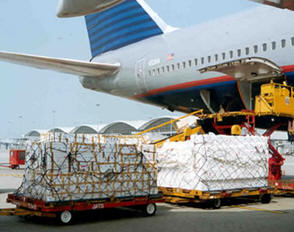|
|||||||||||
|
|
|
|||
|
By Daniel Baxter |
||||
 |
November 17, 2010 - The Airforwarders Association on
Tuesday called on Congress to work with the
Transportation Security Administration (TSA) and Customs
and Border Protection (CBP) to implement a risk-based
assessment program for securing inbound air cargo.
International cooperation will be required to improve
security, this necessitates a harmonized security
program and one that is holistic in including passenger
and all-cargo aircraft. Domestically, efforts already
underway with TSA and CBP to share data and best
practices must continue to achieve meaningful increases
in security.
?Airforwarders and others in the air cargo industry are 100% committed to safety and security, but that is the only instance when a percentage is appropriate in any discussion of cargo security,? said Brandon Fried, executive director of the Airforwarders Association. |
|||
|
|
||||
|
?We urge
Congress to reject additional calls for 100% screening of
inbound cargo. Instead, policymakers should enact a risk-based
system for global air cargo security, as recommended by the
supply chain and our international partners.?
Improving
inter-agency cooperation: TSA and CBP are finally collaborating
on practices and policies to better streamline the international
cargo security system. This must be expanded in both scope and
substance, and should also include the Department of State and
Department of Commerce.
Airport screening should not be considered a first line of defense but instead an effective complement to solutions like CCSP and freight targeting from cargo manifests, already in place for domestic cargo. These should be expanded to the all-cargo universe. Funds for developing technologies for screening, and reviewing existing technology and procedures should be allocated immediately. The EU and other foreign carriers are using pallet screening technologies that the TSA has deemed inadequate streamlining certification for these machines is an imperative first step in harmonization. |
||||


